George Freeman highlights the dentistry crisis in rural Norfolk and, whilst supportive of the dental recovery plan as a long-term solution, calls on the Government to work with the NHS Norfolk and Waveney integrated care board to find a way to get more money to help dentistry in Norfolk now.
George Freeman (Mid Norfolk) (Con)
Rural Norfolk is experiencing a dental crisis and a generation of children are in danger of going without dental care. I welcome the dental recovery plan, but I notice that it will be four or five years before we get more dentists. Last week, NHS Norfolk and Waveney integrated care board announced a £17 million underspend on dentistry. Will the Minister agree to meet with me and the ICB to work out how we get more money out now to help dentistry in Norfolk today?
The Secretary of State for Health and Social Care (Victoria Atkins)
One of the many ways we have tackled access to dental care is to ensure that those dentists who have a contract to conduct NHS work are using them to the top of their licence. We are encouraging dentists to do that through the new patient premium and a higher rate paid for units of dental activity. There is so much more to the plan. Labour keeps trying to claim credit for our plan, but the truth is that our plan promises 2.5 million appointments while its plan promises a miserly 700,000.
So, as we build up the Budget, my message to the Chancellor is very clear. Rural areas face a cost of living crisis because of the cost of energy in the last two years.
Please see the short video update on my ongoing campaign above.
To read more about my recent meeting with the Chancellor and my letter to him (now backed by over 30 MPs, a wide variety of rural agencies and organisations, and a number of local Mid Norfolk pubs, GP surgeries, businesses, care homes and community groups), please click here
See my interview on BBC Radio Norfolk this past Friday here
And see more on my question to the Secretary of State at Department of Levelling Up, Housing and Communities OPQs yesterday here
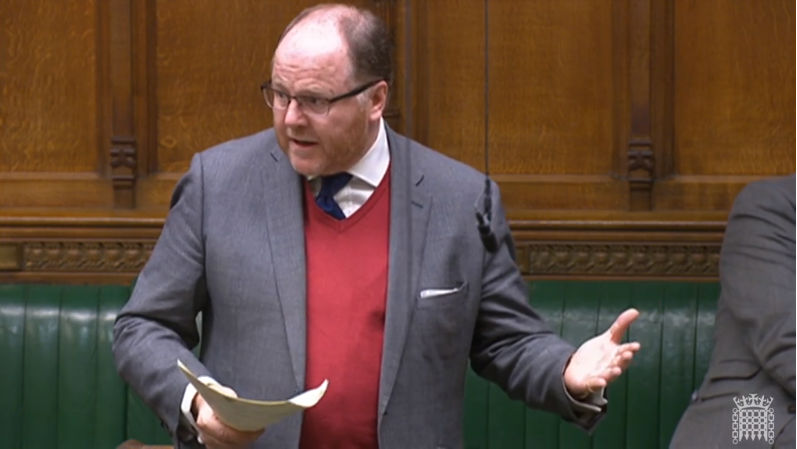
35 years ago when I worked at the NFU, the mad EU Common Agricultural Policy was generating huge surpluses of unwanted food and was calling for a switch to subsidise lower production.
Now we need sustainable intensification.
Great to join the NFU Breakfast event this morning to discuss how.
To find out more about my work on ‘Food, Farming and the Environment’, please visit my campaign page here
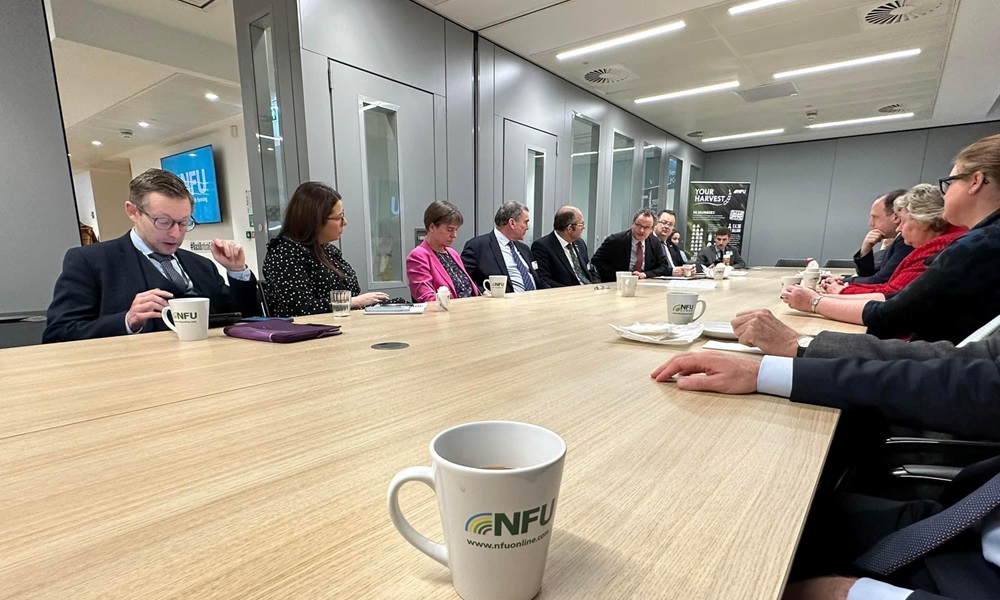
In a wide-ranging speech, George Freeman urges the Government to avoid creating a jungle of well-intended green tape and allow the farming industry to grasp the opportunities presented by Brexit for a new agricultural revolution in which the UK leads the world on delivering high-quality, safe, highly productive, low-input agriculture based on innovation with science, data and metrics.
George Freeman (Mid Norfolk) (Con)
It is a great pleasure to speak from the Back Benches in this farming debate, and to welcome the Secretary of State—I have not seen him yet in this role—and the great Under-Secretary of State for Environment, Food and Rural Affairs, the hon. Member for Keighley (Robbie Moore). I come from a farming family; it is nice to know that we are in such strong hands, and to hear such cross-party support for this key industry. The sector will be grateful to know how strongly it is represented across this House.
I do not have an interest to declare, except that as I come from a farming family, I narrowly escaped a career in farm management. I worked for Greens of Soham and used to be a director of Elsoms Seeds. I also worked for the National Farmers Union back when there was a thing called the Ministry of Agriculture, Fisheries and Food, and I used to chair the all-party parliamentary group on science and technology in agriculture. I take this opportunity to thank Minette Batters for her extraordinary leadership of an organisation that is at times not given to agility and clarity. She has brought clarity to the sector. I wish Tom Bradshaw, her successor, all the very best.
I think the House knows that I was not a great believer that the Brexit referendum would be immediately and easily implementable—I thought it would cause some difficulties and problems—but the one thing that I was very excited about was the opportunity to replace the appalling common agricultural policy, and all its mess, bureaucracy and chaos, with a UK farm and agriculture support framework. That remains an exciting opportunity. Such a framework would give this great industry—that is what it is—security in the long term. History shows that when we give that to farmers, they give us back exactly what we want. We need a long-term, secure policy, that has enough support and flexibility to allow marginal hill farmers to protect the uplands and the beautiful countryside that we love; that supports small family holdings, whose economic marginality requires diversification; and that supports all those other activities that we want to support. In my part of the world, East Anglia, global, world-class, competitive agriculture can lead the way in growing the food that the world needs. There is a huge opportunity.
I observe that in my 14 years in the House, agriculture has gone from not being properly recognised as an industry, and almost being seen by the Government as an activity of park keeping, to being, after the pandemic and Ukraine, a hugely important strategic sector that is key to food security and an opportunity for us globally. We need to double world food production by 2050 on the same land area, with half as much water and energy. That is a global grand challenge. This country is a powerhouse in agricultural science, research and technology, and can help make that possible. The opportunity is for us to set out a framework that unlocks the genius of our agricultural sector, so that we can show the world how it is done. If we get that right, we will invigorate the rural economy.
Of course, Brexit was eight years ago. I pay tribute to the Government’s various commitments: the £2.4 billion ringfenced commitment, the sustainable farming incentive, countryside stewardship, the food innovation programme, the food strategy, the animal health and welfare pathway, ELMS, and the Prime Minister’s commitment at the recent NFU conference. The real key is ensuring that the farming community feel and see long-term, clear, sustainable support.
I want to highlight one or two things that the farmers of Mid Norfolk say we have still to get right. First, they highlight the importance of a really reliable, long-term policy framework for the commercial sector, as well as an environmental framework for skills and for innovation. For 40 years after the war, the sector knew what we wanted it to do. It needs to know that we know what we want it to do, and that we will not change our mind every five, three or two years.
Secondly, agriculture must be recognised as a strategic industry that is key to our balance of payments, food security and ability to connect to those huge global markets. Public support figures show that the public are with us now—they were not 20 or 30 years ago; they did not think of it as a great industry that they wanted to support, but they do now.
Thirdly, we must understand that farmers are, first and foremost, mainly small businesses. They are not sophisticated; generally, they are not people with degrees or MBAs in business management. They are people who love what they do. We need to give them a framework that works for them as small businesses. Farming is a very unusual business, which invests most of its costs up front in the hopeful pursuit of revenue and profit downstream. Not many businesses do that. We need to understand that reality, as that is partly why farms need such security.
A number of colleagues have talked about food security. We are not destined only to grow the root crops, potatoes and traditional crops here, and to import the salad crops. Incredible innovations in vertical farming mean that we are now able to produce salad crops in this country. I have visited vertical farms—we have a great one in Norfolk at Fischer Farms. They use a fraction of the land area, with a fraction of the energy and chemicals used in traditional farming. There is no reason why that food security target could not be a lot higher.
Of course we all want environmental agriculture. I pay tribute to Kevin Bowes, the Breckland farmers, the Upper Wensum farmers group and the farmers at Wendling Beck. Farmers in Mid Norfolk are shaping best practice for agri-environment schemes. I recently visited a flagship project with Natural England: 20 or 30 people had come up from London, having bought their wellies at the garage; and Tony Juniper was preaching rewilding. I went to look at some land that, as a farmer’s boy, I would think you could probably get two hectares or an acre out of—and the finest minds in the land were trying to work out how to get nothing out of it, at a time when we really need food production. I am worried that the E in DEFRA sometimes triumphs over the F, the R and the A. Food needs to be right back at the heart of the Department; I know that the Secretary of State and the Minister are committed to that.
I make the point about the environment because we all know that, traditionally, agriculture has been a very high emitting industry. We need to show the world how to move to a low-emission agricultural sector. We are well positioned to do that, not least in agricultural genetics and breeding science at the Norwich Research Park, where we are pioneering drought-resistant crops that do not need highly carbon-intensive chemicals, and disease-resistant and drought-resistant crops for the rest of the world. In our chase for net zero, the left hand and the right hand need to be co-ordinated. We are not doing anything for net zero if we are disrupting farming in East Anglia with endless solar farms, cables and pylons.
Sir Edward Leigh (Gainsborough) (Con)
There is a simple thing that the Department can do, which I have asked it to do again and again: not put solar farms on 3b land. We put them on warehouses or inferior land, but not on good agricultural land in Lincolnshire and Norfolk.
George Freeman
I agree. If we are to lead the world in net zero agriculture, it is all about metrics and data. It is about picking up a pint of milk, a potato or a loaf of bread and knowing its environmental footprint. With that, we can start to give the sector incentives and rewards for driving down the environmental footprint. Without it, we are condemned to follow environmental policies that are emotional and not connected to proper science and research. If we get that right, the UK could be a leader in setting those environmental metrics.
That brings me to water quality. I commend the fact that UK agriculture has achieved a 75% reduction in pollution—that is very right. In our part of the world, the nutrient neutrality muddle has been a serious blow to farmers who are taking water quality seriously by reducing pig effluent and trying to get the balance right. Clunky, bureaucratic, big schemes in Whitehall that were not thought through properly are causing chaos in our part of the world in both agriculture and housing.
That brings me to flooding, on which I agree with the hon. Member for Selby and Ainsty (Keir Mather)—it is good to hear colleagues from all corners of this House getting the problem. Large parts of Mid Norfolk are currently under water. That is not good for agricultural productivity. Farms are holding water, for which they receive no support. There has been a lot of talk recently of “from the river to the sea.” The basics of drainage are that rivers are there to drain water off the land into the sea, and we could do with the Environment Agency putting dredging and the clearing of rivers at the top of the priority list to ensure that we get the water off the land properly.
Mark Menzies (Fylde) (Con)
My hon. Friend is making a powerful point. That issue is not just limited to Norfolk. The Secretary of State will know, being a Fylde lad, that it is affecting my farmers. We are crying out for water draining off land and letting farmers farm.
George Freeman
I could not agree more. The Secretary of State, whose constituency is North East Cambridgeshire, has lived the reality of getting water off the land as much as anybody.
That brings me to labour shortages. We have had real problems in the last few years: post Brexit, post pandemic and with the minimum wage, farmers are struggling. When a horticultural grower of the calibre of Andy Allen has to plough his prime English asparagus crop back into the land because he cannot find anyone to cut it, we are in real trouble. Some of our agricultural colleges are fantastic—I think I still have a place at Harper Adams if this career does not work out—but I worry that Easton College in Mid Norfolk is not properly anticipating the future needs of a high technology agricultural industry. We need to nurture the skills of tomorrow. Our young farmers get it, but we need to give them the courses.
I echo the comments that a number of Members have made about the difference between landowners and farmers. They are not the same thing. Many farmers I see are contract farmers—they are working 24/7, covering huge amounts of land and operating with higher and higher costs. The environmental payments tend to go to the landowners. We need to look after the farmers: the people who are developing those skills and inspiring the next generation to come into this great industry. If we end up with an industry where the hedge funds own all the land and no one is able to farm it, we will have done ourselves no favours. Quite a lot of those pressures explain why we have such a problem with mental health in agriculture. One farmer a week is taking their life. We need to think about what is driving that.
I applaud the Government’s work on production standards. We have a great opportunity in free trade deals to set the higher standards and to show the world how the UK produces more with less. I would offer a zero tariff only to those who are using the world’s very best technologies for zero-emission agriculture, and create a market for the exporting of our net zero technologies. Sustainable intensification—delivering more with less—is not just a strapline. The world desperately needs us to help deliver that. In our sector we have huge strength: the John Innes Centre at the Norwich Research Park, the Sainsbury Laboratory in Aberystwyth, and at Roslin and Wellesbourne. We are a global powerhouse in science research. We spend about half a billion a year on it, but it does not yet feel like the agricultural sector is underpinned by a half a billion of research. I know that the Secretary of State is thinking hard about how that science and research is better pulled through.
That brings me to agritech—a huge global sector. I was proud to set up our first agritech industrial strategy, the catalyst fund and the centres with my noble Friend Lord Willetts. We have some amazing agritech companies, but the key is to adopt the technologies they are producing. I pay tribute to companies such as Tropic Biosciences and to the work going on at Rothamsted. But when a company like the Small Robot Company develops brilliant technology but cannot find a market here to use it, I think that tells us as policymakers that we have to create a market in which those technologies are commercially viable and adoptable—otherwise we will end up incubating the rest of the world’s agritech sectors and not actually deploying the technologies here.
I will close by mentioning gene editing, which is a huge strength here in the UK—not just in disease resistance and drought-resistant crops, and shifting from chemical to biological control systems, but in nutraceuticals, functional foods and novel foods. We could lead the world in a whole new sector of agriculture, but that regulatory leadership is key.
The opportunity that people voted for eight years ago is still there. It is being born slowly and there have been many disruptions, but it is exciting. If we get this right, we could trigger and be the crucible of a new agricultural revolution in which we show the world how to deliver high-quality, safe, highly productive, low-input agriculture based on innovation with science, data and metrics. The UK could export that around the world. The alternative is that we create a jungle of well-intended green tape that gets in the way of a fundamentally commercial sector leading us into that new dawn. I know that DEFRA Ministers understand that. My job is to speak for the people of Mid Norfolk, and to ensure that we in this House show that we get it and that we are there for a new generation, who want to do the right thing for this country and for the globe.
In a wide-ranging speech, George Freeman urges the Government to avoid creating a jungle of well-intended green tape and allow the farming industry to grasp the opportunities presented by Brexit for a new agricultural revolution in which the UK leads the world on delivering high-quality, safe, highly productive, low-input agriculture based on innovation with science, data and metrics.
George Freeman (Mid Norfolk) (Con)
It is a great pleasure to speak from the Back Benches in this farming debate, and to welcome the Secretary of State—I have not seen him yet in this role—and the great Under-Secretary of State for Environment, Food and Rural Affairs, the hon. Member for Keighley (Robbie Moore). I come from a farming family; it is nice to know that we are in such strong hands, and to hear such cross-party support for this key industry. The sector will be grateful to know how strongly it is represented across this House.
I do not have an interest to declare, except that as I come from a farming family, I narrowly escaped a career in farm management. I worked for Greens of Soham and used to be a director of Elsoms Seeds. I also worked for the National Farmers Union back when there was a thing called the Ministry of Agriculture, Fisheries and Food, and I used to chair the all-party parliamentary group on science and technology in agriculture. I take this opportunity to thank Minette Batters for her extraordinary leadership of an organisation that is at times not given to agility and clarity. She has brought clarity to the sector. I wish Tom Bradshaw, her successor, all the very best.
I think the House knows that I was not a great believer that the Brexit referendum would be immediately and easily implementable—I thought it would cause some difficulties and problems—but the one thing that I was very excited about was the opportunity to replace the appalling common agricultural policy, and all its mess, bureaucracy and chaos, with a UK farm and agriculture support framework. That remains an exciting opportunity. Such a framework would give this great industry—that is what it is—security in the long term. History shows that when we give that to farmers, they give us back exactly what we want. We need a long-term, secure policy, that has enough support and flexibility to allow marginal hill farmers to protect the uplands and the beautiful countryside that we love; that supports small family holdings, whose economic marginality requires diversification; and that supports all those other activities that we want to support. In my part of the world, East Anglia, global, world-class, competitive agriculture can lead the way in growing the food that the world needs. There is a huge opportunity.
I observe that in my 14 years in the House, agriculture has gone from not being properly recognised as an industry, and almost being seen by the Government as an activity of park keeping, to being, after the pandemic and Ukraine, a hugely important strategic sector that is key to food security and an opportunity for us globally. We need to double world food production by 2050 on the same land area, with half as much water and energy. That is a global grand challenge. This country is a powerhouse in agricultural science, research and technology, and can help make that possible. The opportunity is for us to set out a framework that unlocks the genius of our agricultural sector, so that we can show the world how it is done. If we get that right, we will invigorate the rural economy.
Of course, Brexit was eight years ago. I pay tribute to the Government’s various commitments: the £2.4 billion ringfenced commitment, the sustainable farming incentive, countryside stewardship, the food innovation programme, the food strategy, the animal health and welfare pathway, ELMS, and the Prime Minister’s commitment at the recent NFU conference. The real key is ensuring that the farming community feel and see long-term, clear, sustainable support.
I want to highlight one or two things that the farmers of Mid Norfolk say we have still to get right. First, they highlight the importance of a really reliable, long-term policy framework for the commercial sector, as well as an environmental framework for skills and for innovation. For 40 years after the war, the sector knew what we wanted it to do. It needs to know that we know what we want it to do, and that we will not change our mind every five, three or two years.
Secondly, agriculture must be recognised as a strategic industry that is key to our balance of payments, food security and ability to connect to those huge global markets. Public support figures show that the public are with us now—they were not 20 or 30 years ago; they did not think of it as a great industry that they wanted to support, but they do now.
Thirdly, we must understand that farmers are, first and foremost, mainly small businesses. They are not sophisticated; generally, they are not people with degrees or MBAs in business management. They are people who love what they do. We need to give them a framework that works for them as small businesses. Farming is a very unusual business, which invests most of its costs up front in the hopeful pursuit of revenue and profit downstream. Not many businesses do that. We need to understand that reality, as that is partly why farms need such security.
A number of colleagues have talked about food security. We are not destined only to grow the root crops, potatoes and traditional crops here, and to import the salad crops. Incredible innovations in vertical farming mean that we are now able to produce salad crops in this country. I have visited vertical farms—we have a great one in Norfolk at Fischer Farms. They use a fraction of the land area, with a fraction of the energy and chemicals used in traditional farming. There is no reason why that food security target could not be a lot higher.
Of course we all want environmental agriculture. I pay tribute to Kevin Bowes, the Breckland farmers, the Upper Wensum farmers group and the farmers at Wendling Beck. Farmers in Mid Norfolk are shaping best practice for agri-environment schemes. I recently visited a flagship project with Natural England: 20 or 30 people had come up from London, having bought their wellies at the garage; and Tony Juniper was preaching rewilding. I went to look at some land that, as a farmer’s boy, I would think you could probably get two hectares or an acre out of—and the finest minds in the land were trying to work out how to get nothing out of it, at a time when we really need food production. I am worried that the E in DEFRA sometimes triumphs over the F, the R and the A. Food needs to be right back at the heart of the Department; I know that the Secretary of State and the Minister are committed to that.
I make the point about the environment because we all know that, traditionally, agriculture has been a very high emitting industry. We need to show the world how to move to a low-emission agricultural sector. We are well positioned to do that, not least in agricultural genetics and breeding science at the Norwich Research Park, where we are pioneering drought-resistant crops that do not need highly carbon-intensive chemicals, and disease-resistant and drought-resistant crops for the rest of the world. In our chase for net zero, the left hand and the right hand need to be co-ordinated. We are not doing anything for net zero if we are disrupting farming in East Anglia with endless solar farms, cables and pylons.
Sir Edward Leigh (Gainsborough) (Con)
There is a simple thing that the Department can do, which I have asked it to do again and again: not put solar farms on 3b land. We put them on warehouses or inferior land, but not on good agricultural land in Lincolnshire and Norfolk.
George Freeman
I agree. If we are to lead the world in net zero agriculture, it is all about metrics and data. It is about picking up a pint of milk, a potato or a loaf of bread and knowing its environmental footprint. With that, we can start to give the sector incentives and rewards for driving down the environmental footprint. Without it, we are condemned to follow environmental policies that are emotional and not connected to proper science and research. If we get that right, the UK could be a leader in setting those environmental metrics.
That brings me to water quality. I commend the fact that UK agriculture has achieved a 75% reduction in pollution—that is very right. In our part of the world, the nutrient neutrality muddle has been a serious blow to farmers who are taking water quality seriously by reducing pig effluent and trying to get the balance right. Clunky, bureaucratic, big schemes in Whitehall that were not thought through properly are causing chaos in our part of the world in both agriculture and housing.
That brings me to flooding, on which I agree with the hon. Member for Selby and Ainsty (Keir Mather)—it is good to hear colleagues from all corners of this House getting the problem. Large parts of Mid Norfolk are currently under water. That is not good for agricultural productivity. Farms are holding water, for which they receive no support. There has been a lot of talk recently of “from the river to the sea.” The basics of drainage are that rivers are there to drain water off the land into the sea, and we could do with the Environment Agency putting dredging and the clearing of rivers at the top of the priority list to ensure that we get the water off the land properly.
Mark Menzies (Fylde) (Con)
My hon. Friend is making a powerful point. That issue is not just limited to Norfolk. The Secretary of State will know, being a Fylde lad, that it is affecting my farmers. We are crying out for water draining off land and letting farmers farm.
George Freeman
I could not agree more. The Secretary of State, whose constituency is North East Cambridgeshire, has lived the reality of getting water off the land as much as anybody.
That brings me to labour shortages. We have had real problems in the last few years: post Brexit, post pandemic and with the minimum wage, farmers are struggling. When a horticultural grower of the calibre of Andy Allen has to plough his prime English asparagus crop back into the land because he cannot find anyone to cut it, we are in real trouble. Some of our agricultural colleges are fantastic—I think I still have a place at Harper Adams if this career does not work out—but I worry that Easton College in Mid Norfolk is not properly anticipating the future needs of a high technology agricultural industry. We need to nurture the skills of tomorrow. Our young farmers get it, but we need to give them the courses.
I echo the comments that a number of Members have made about the difference between landowners and farmers. They are not the same thing. Many farmers I see are contract farmers—they are working 24/7, covering huge amounts of land and operating with higher and higher costs. The environmental payments tend to go to the landowners. We need to look after the farmers: the people who are developing those skills and inspiring the next generation to come into this great industry. If we end up with an industry where the hedge funds own all the land and no one is able to farm it, we will have done ourselves no favours. Quite a lot of those pressures explain why we have such a problem with mental health in agriculture. One farmer a week is taking their life. We need to think about what is driving that.
I applaud the Government’s work on production standards. We have a great opportunity in free trade deals to set the higher standards and to show the world how the UK produces more with less. I would offer a zero tariff only to those who are using the world’s very best technologies for zero-emission agriculture, and create a market for the exporting of our net zero technologies. Sustainable intensification—delivering more with less—is not just a strapline. The world desperately needs us to help deliver that. In our sector we have huge strength: the John Innes Centre at the Norwich Research Park, the Sainsbury Laboratory in Aberystwyth, and at Roslin and Wellesbourne. We are a global powerhouse in science research. We spend about half a billion a year on it, but it does not yet feel like the agricultural sector is underpinned by a half a billion of research. I know that the Secretary of State is thinking hard about how that science and research is better pulled through.
That brings me to agritech—a huge global sector. I was proud to set up our first agritech industrial strategy, the catalyst fund and the centres with my noble Friend Lord Willetts. We have some amazing agritech companies, but the key is to adopt the technologies they are producing. I pay tribute to companies such as Tropic Biosciences and to the work going on at Rothamsted. But when a company like the Small Robot Company develops brilliant technology but cannot find a market here to use it, I think that tells us as policymakers that we have to create a market in which those technologies are commercially viable and adoptable—otherwise we will end up incubating the rest of the world’s agritech sectors and not actually deploying the technologies here.
I will close by mentioning gene editing, which is a huge strength here in the UK—not just in disease resistance and drought-resistant crops, and shifting from chemical to biological control systems, but in nutraceuticals, functional foods and novel foods. We could lead the world in a whole new sector of agriculture, but that regulatory leadership is key.
The opportunity that people voted for eight years ago is still there. It is being born slowly and there have been many disruptions, but it is exciting. If we get this right, we could trigger and be the crucible of a new agricultural revolution in which we show the world how to deliver high-quality, safe, highly productive, low-input agriculture based on innovation with science, data and metrics. The UK could export that around the world. The alternative is that we create a jungle of well-intended green tape that gets in the way of a fundamentally commercial sector leading us into that new dawn. I know that DEFRA Ministers understand that. My job is to speak for the people of Mid Norfolk, and to ensure that we in this House show that we get it and that we are there for a new generation, who want to do the right thing for this country and for the globe.
George Freeman highlights the vulnerability of rural areas to high energy costs and that rural areas are 150% more vulnerable to fuel poverty. He calls on the Chancellor to provide more support for rural councils in the Budget.
George Freeman (Mid Norfolk) (Con)
Rural areas are particularly vulnerable to the high energy costs we have seen in the last two years. They are 150% more vulnerable to fuel poverty. Does my right hon. Friend agree that councils on the frontline of high rural costs are seeing a spate of homelessness? Great councils, such as Breckland Council in my patch, are now spending 50% of their net budget on relief. Would he support me in urging the Chancellor to increase that relief in the Budget on Wednesday?
The Secretary of State for Levelling Up, Housing and Communities (Michael Gove)
My hon. Friend makes an important point. We are concentrating on ensuring we can level up the north and the midlands, but we also need to recognise that levelling up encompasses making sure that those in rural areas, who contribute so much to the life of our nation, are supported through the challenges that the cost of living crisis has generated.
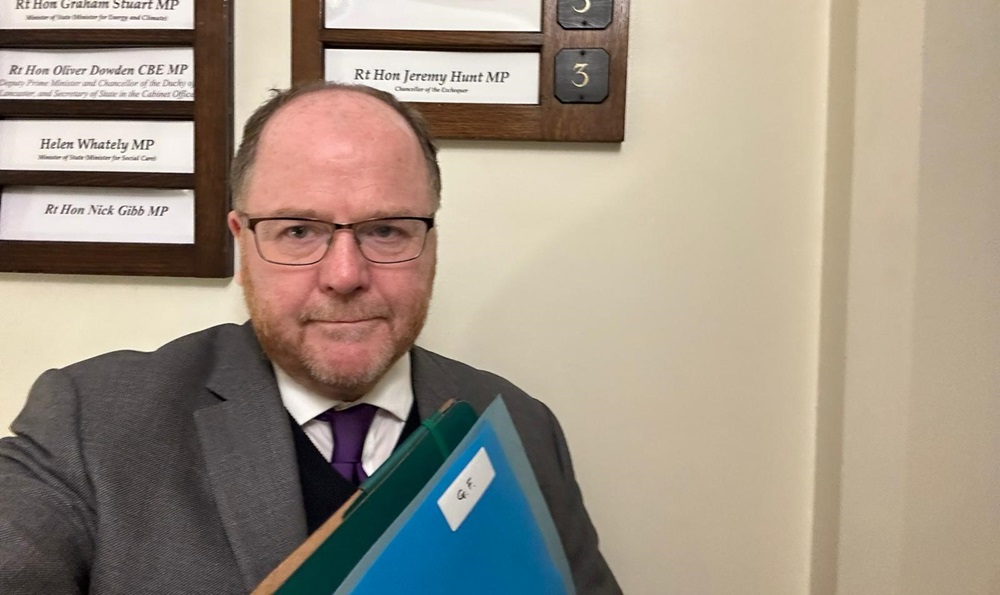
How we take care of, and educate, some of our most vulnerable people is a measure of us as a society. EVERYONE has the right to a good education.
It is vital that local councils have the resources they need to effectively fund and deliver SEND support in our local schools.
That’s why, ahead of this week’s Budget, I have jointly written to the Chancellor, alongside 70 MPs, to ask that he increase funding for SEND education – so that we can ensure SEND pupils have the proper support they need.
See the letter below.
To stay up to date with all of my work on this key issue, please visit my campaign page here
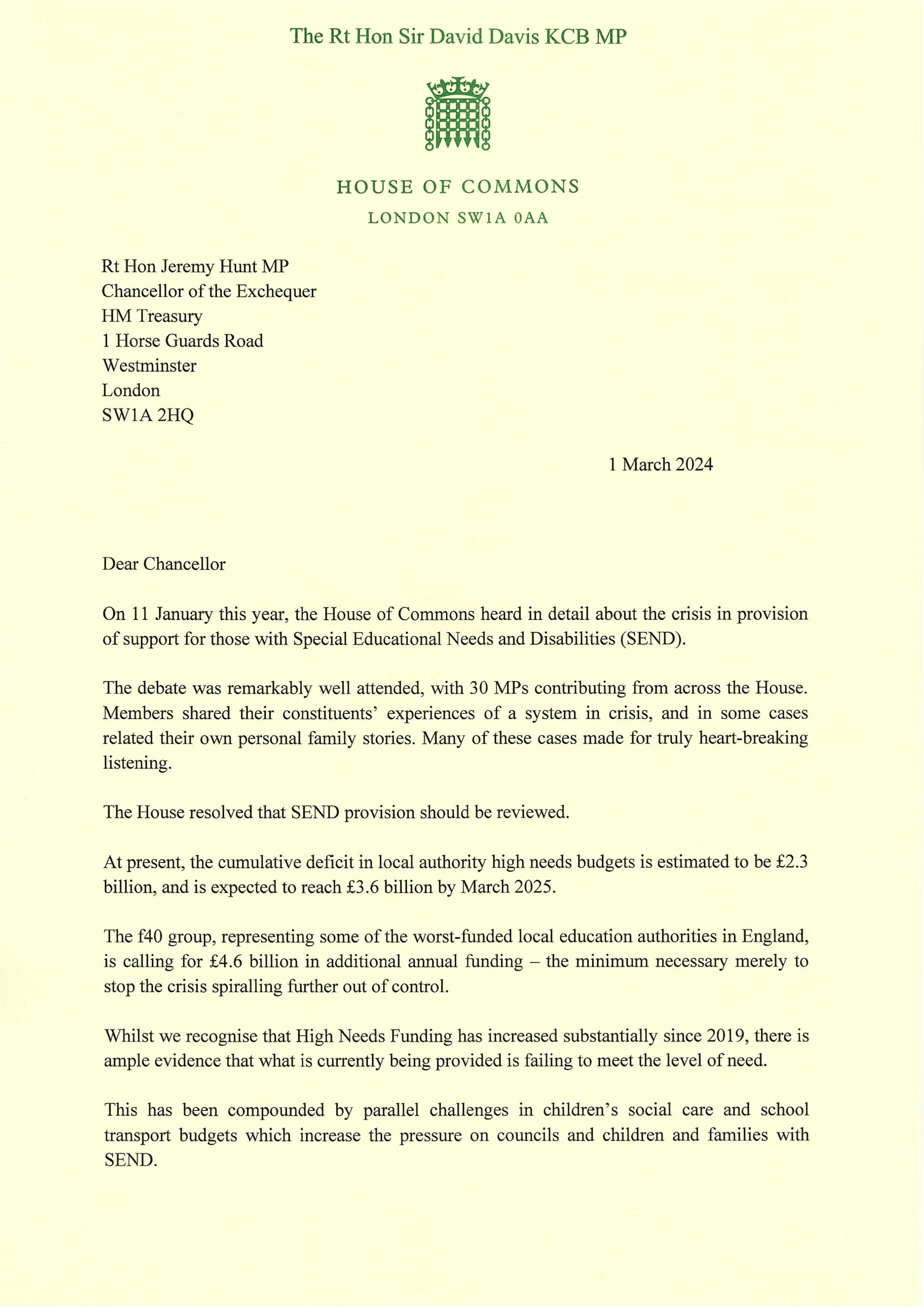
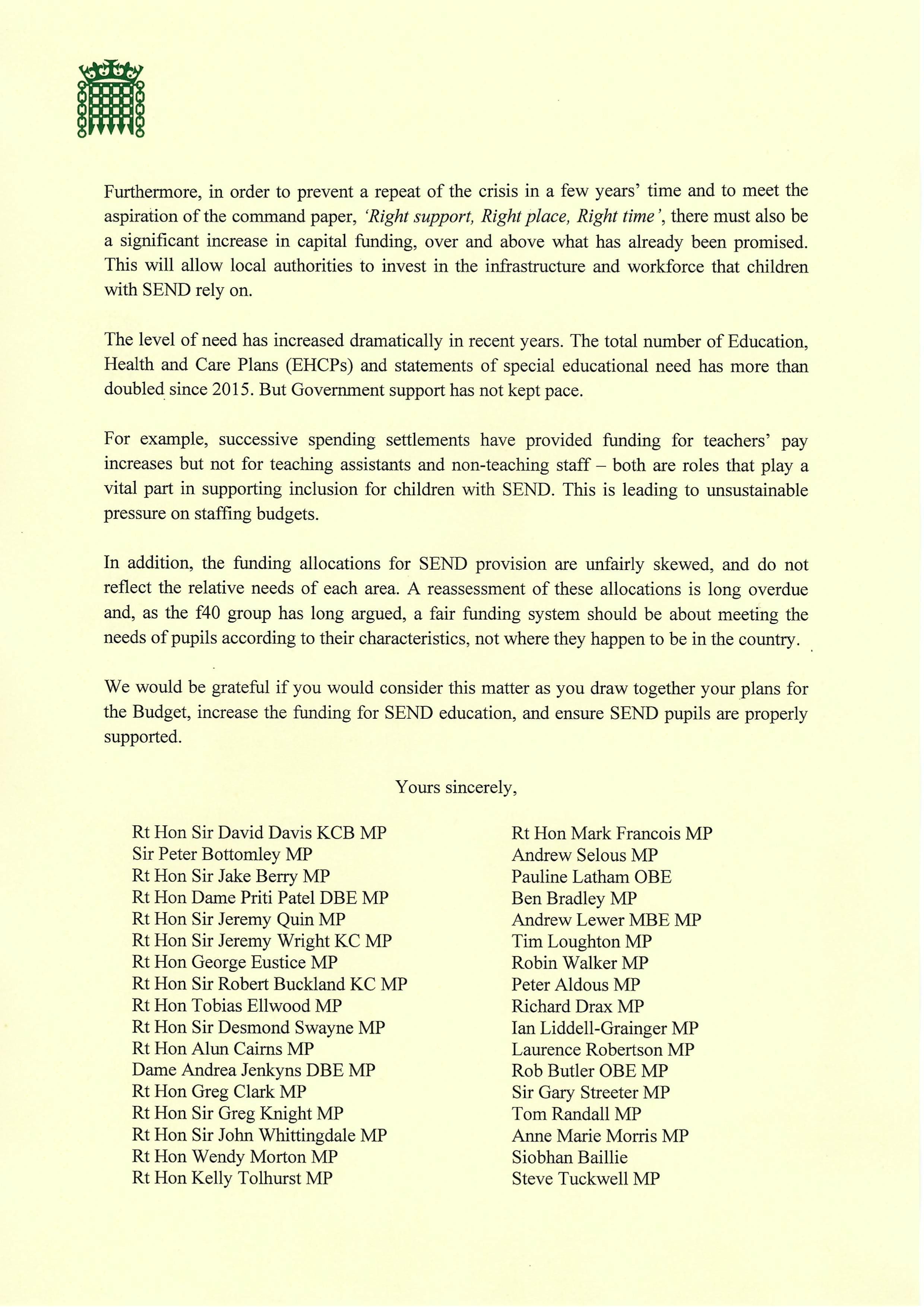
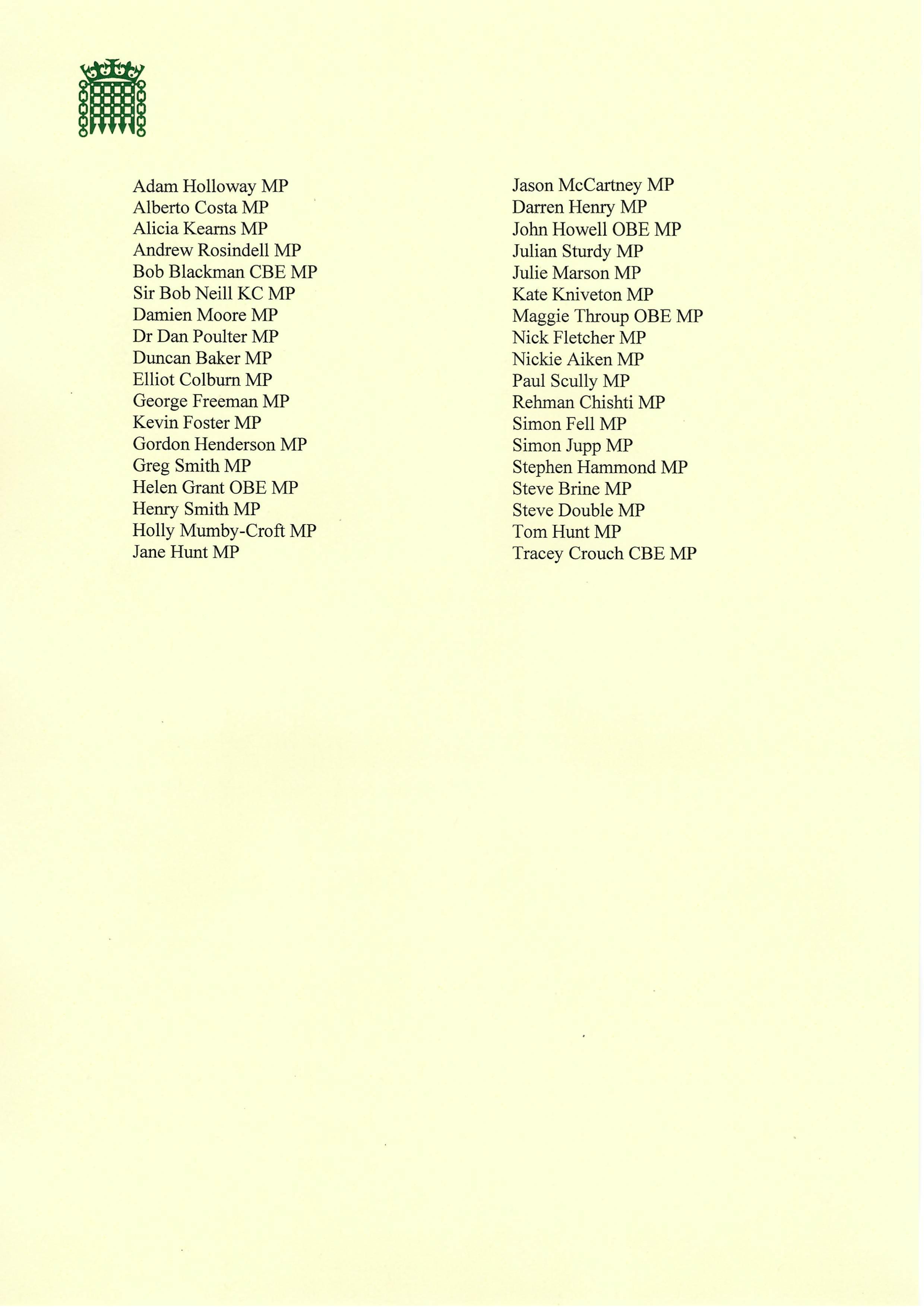
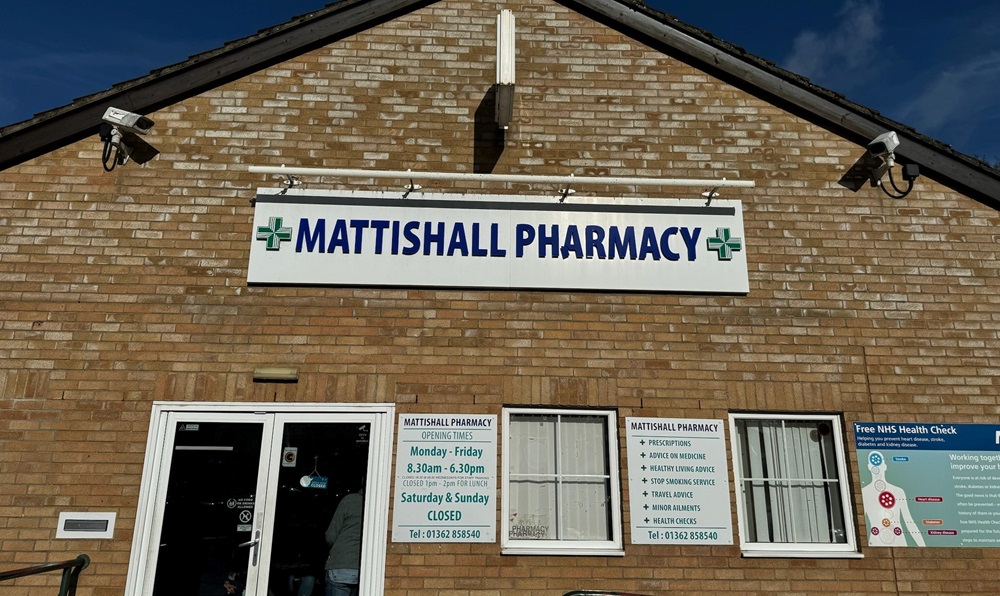
Shouldn’t the NHS be a statutory consultee on all new housing developments?
As I work with GPs across Mid Norfolk to highlight the need for the greater integration of health and social care infrastructure and provision with planning (as is the case for education and planning), I met with the Practice Leadership at Mattishall Surgery and Pharmacy again on Friday – as part of my ongoing work with them to try and help fast track plans for an expansion that would reflect the scale of new housing in our area and enable staff to deliver more top level services, more efficiently.
While I have recently written to ministers and officials in Westminster to pose that key question, I will continue to speak up on behalf of our local GPs – and am committed to supporting Mattishall on this key local project. I am working closely with the Surgeries on a series of follow up actions.
To learn more, please see the webstory on my recent visit to Mattishall Surgery and Pharmacy here.
To find out more about my regular conversations with my Mid Norfolk GP Practice Leaders, please click here
To learn more about similar work I am doing over in Attleborough with the Surgeries and local ATTCARE team, please click here
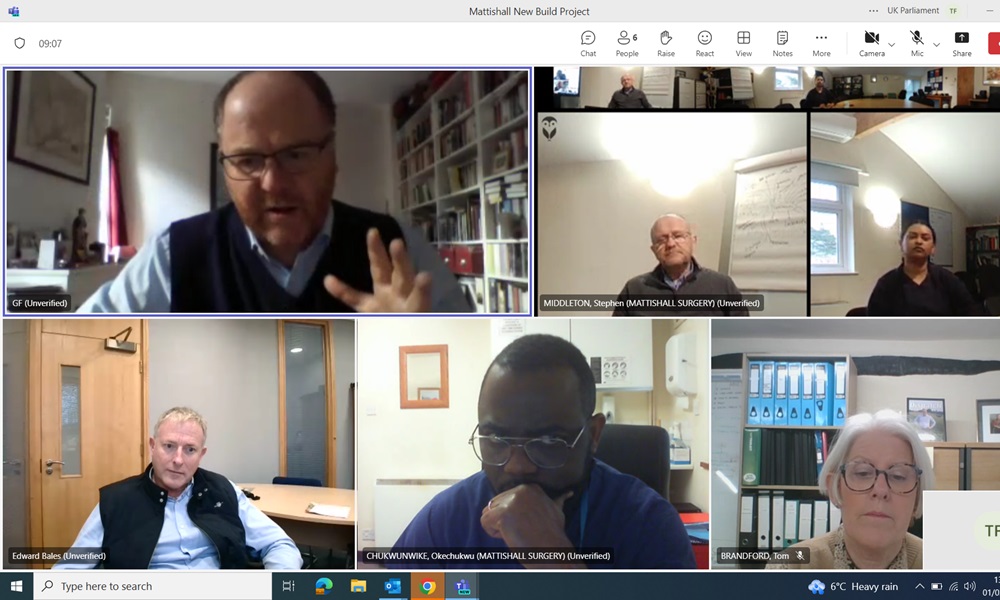
UPDATE - 6 November 2023
Mattishall Surgery and Pharmacy Visit
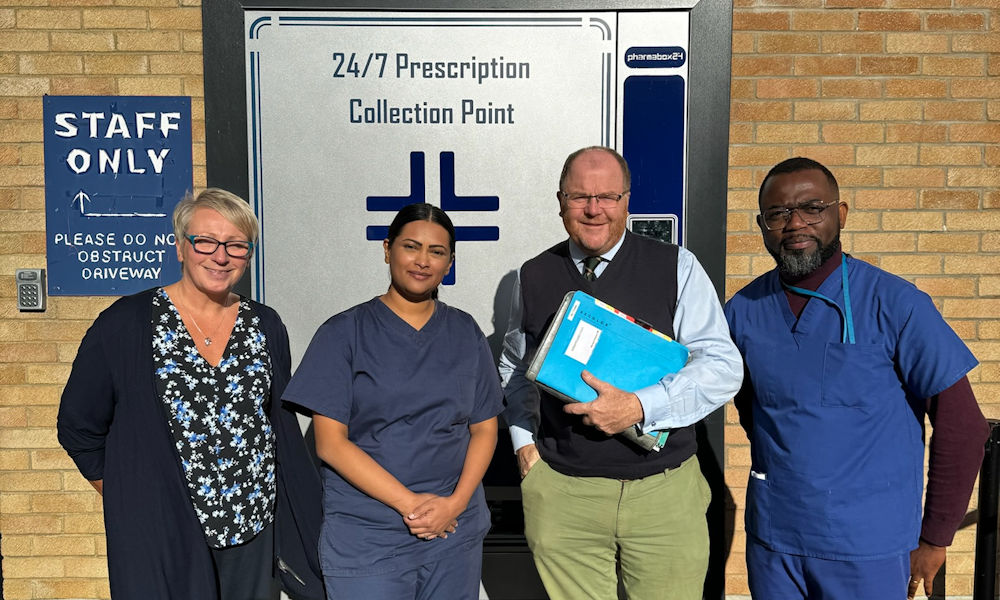
GP Surgeries and Pharmacies are under immense pressure – especially those in rural areas such as Mid Norfolk.
Staff at these vital local facilities work incredibly hard, as I saw on Friday when I visited Mattishall Surgery and Pharmacy. They are currently dealing with the knock-on effects of the pandemic backlog, meaning that people require GP care for longer whilst they wait for surgery, as well as national trends such as a growing and ageing population.
We must ensure that these dedicated staff, who work incredibly hard to ensure that we are all safe and well, receive the support they need – including ensuring that surgeries are properly compensated for the costs that come with serving a rural area, making sure that they are able to recruit staff (which is why I am pleased that the Government continues to offer bonuses of £20,000 to trainee GP’s who choose practices in areas struggling with recruitment), and seeing that they have proper facilities which enable them to care for their patients.
That is why, in conjunction with the practice leadership at Mattishall, I am exploring what action can be taken to try and bring about progress towards a new premises for the surgery and pharmacy – one that would better enable staff to provide the first-class services that patients need and deserve.
The team at the surgery continue to offer innovative solutions – whether that be a dispensing robot, or a 24 hour self-serve prescription collection point. That being said, it is clear from my visit that their building has reached the end of its useful life. A new, larger building would enable the practice to make sure that the team can get ahead of the curve on the health needs and population growth of the area for years to come – rather than trying to play catch-up as they have too often been made to do.
You can see more on my visit in the video below.
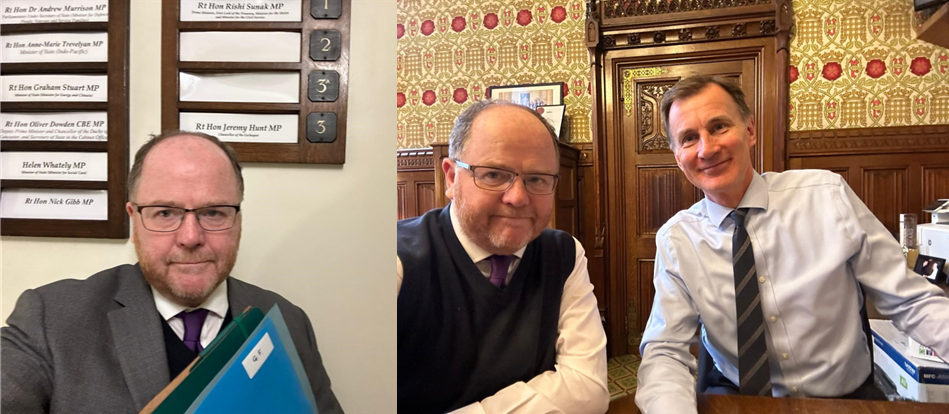
Rural counties like Norfolk have always suffered from disproportionately high energy and fuel costs compared to urban areas – a fact seldom reflected in the Whitehall funding formulas.
However, the sudden energy price inflation caused by Russia’s illegal war in Ukraine has led to a massive increase in fuel and energy costs over the last two years which has significantly added to those pressures and now means we are facing the perfect storm.
On Wednesday, I met with the Chancellor to discuss my letter to him and directly ask that he include in his Budget measures to help tackle the crippling impact of disproportionately high energy costs on rural communities.
(See my letter below)
I am determined to do all I can to be Mid Norfolk’s strongest voice on these key issues – and am working with other rural MPs to emphasise the importance of additional targeted assistance for rural communities.
To stay up to date with my campaign progress, please click here
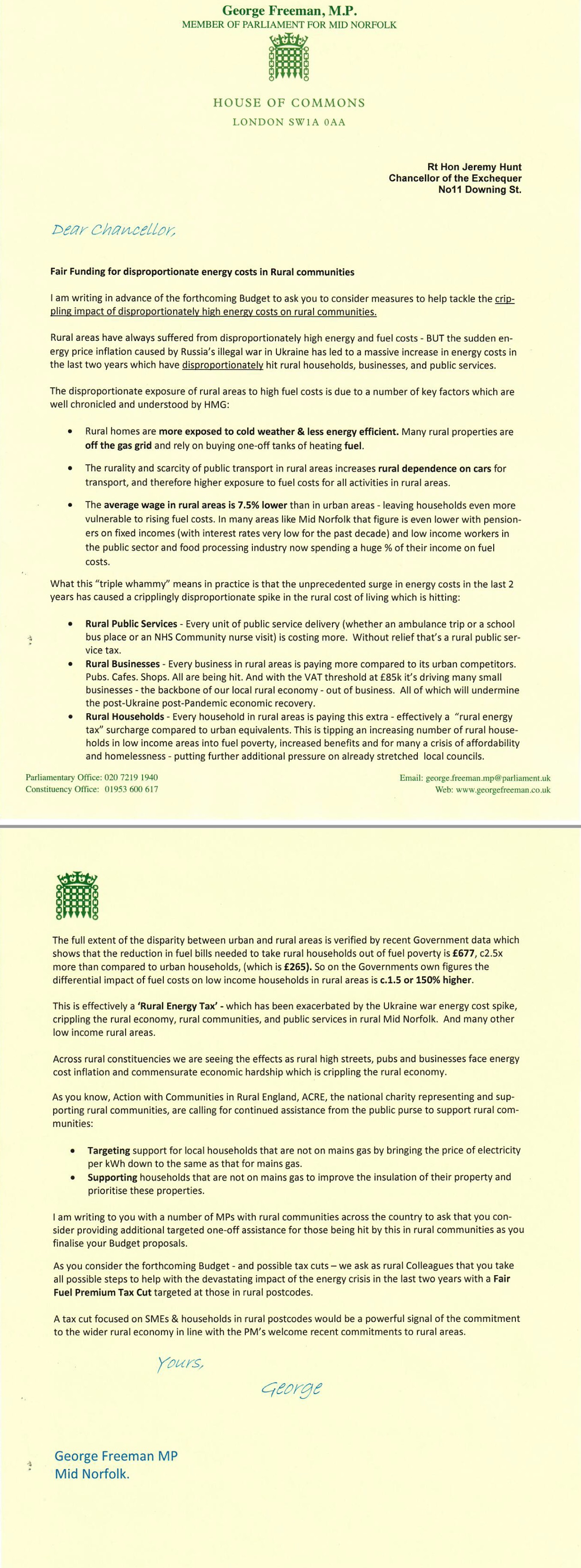
George Freeman raises concerns at the impact on horseracing if the affordability checks designed to tackle addictive online gambling go ahead as proposed and urges the Government to find an alternative that will both protect racing’s finances and take the opportunity for this country to lead in harnessing technology and smart regulation to tackle gambling addiction.
George Freeman (Mid Norfolk) (Con)
They say that all good things come to those who wait, so I hope the Minister will listen to my words and then reassure me that I have not waited in vain. I am grateful for the chance to speak in this debate. When more than 40 or 50 colleagues turn up to Westminster Hall—for those listening, and who are not aware—we clearly have a problem. Actually, I suggest we have two problems that the Minister present has the great honour of helping us to deal with.
The first is the very serious problem of the increasing number of people in this country who find themselves in the turmoil of addictive online gambling. That is a real problem. The second is the fragility of the finances of racing, a sport that we all love. We need to be clear about those two problems and not to conflate them too much, as has been done, and to work out how to deal with them both, because both problems are real.
I have no particular interest in racing, other than a long family history and connection. I have been to the races many times, both before my time here and as a Member of Parliament, and occasionally as a guest of the BHA, which supported the work I did to create the Bridge of Hope charity. I was, with pride, closely involved with the 2013 Offshore Gambling Bill, promoted by my right hon. Friend the Member for West Suffolk (Matt Hancock), who represents Newmarket, to bring offshore betting within the purview of the levy to give racing a serious boost. I do not have a racetrack in my constituency yet; I have waited for the Boundary Commission to put Fakenham in my patch for many years, but it has refused to do so. I enjoy the little tracks as much as the big—a point that my hon. Friend the Member for Waveney (Peter Aldous) has just made. It is a great pleasure to follow him. My brother trains in California, and I have spent many hours as an underpaid hot walker, walking his hots around the track in both California and, in rather cooler weather, at Woodbine in the winter. I am a happy and assiduous attendee at Fakenham races, one of the country’s great regional tracks
I think the House will be aware that I really stand this afternoon because of my own family experience. My father was a jump jockey who rode through the ’40s and ’50s. He rode for Sir Peter Cazalet and rode Her late Majesty the Queen Mother’s horses. In 1958, he won the grand national on Mr What and the King George on Lochroe. With my mother, he bred Specify, who went on to win the national in ’71. However, my father’s is a tragic story. After many head injuries, head injury-induced depression and psychosis, alcohol addiction, gambling and bankruptcy, his life—indeed, that of my family—collapsed in 1967. It is a familiar tale for many sporting heroes, but a story that, thanks to the great work of the racing industry, we do not see any more because we are better at looking after jockeys and better at detecting head injuries.
It is in that context that I want to make clear that I rise today because I take the unintended consequences very seriously—the damage of great sport when not properly regulated, and the damage of gambling and bankruptcy. I am not at all relaxed about those dangers. I hope it is, therefore, all the more powerful when I join colleagues who have spoken today in saying how seriously I worry that this well-intended measure, designed to tackle the curse of online gambling, is in danger of not solving that problem, but exacerbating another: the deeply fragile finances of a great sport that all Members present, across all parties, have expressed our love for.
I am fearful that we are in danger of making a mistake that, in 15 years in Parliament and 30 years of watching, I have seen all too often, which is the mistake of do-somethingery: “Something must be done. This is something—let’s do it.” It is using a sledgehammer to crack a nut, with the law of unintended consequences, punishing the innocent and doing very little to tackle the real problem, and seriously damaging the financial resilience of this great industry. I think it would be a huge mistake, and a great shame on us as a generation and on the Government who allowed it to happen. In that spirit, I am here to try to give the Minister some helpful tips on how we might find the right way through this.
I thank the petitioners who brought us here today, as well as the Racing Post and the British Horseracing Authority, which have done such good work to raise the issues. I will highlight three important pieces of data shared in the British Horseracing Authority brief. The first relates to the impact of these measures. More than 15,000 horserace bettors took part in the Right to Bet survey in the autumn. Of those, more than half said they will stop betting, or bet less, if new checks are introduced, while one in 10 bettors is already using a black market bookmaker. Some 40% are prepared to use the black market if clunky enforcement affordability checks are implemented, 90% oppose postcodes or job titles being used to determine their ability to bet, and 26% have already experienced an affordability check ahead of the passing of any legislation.
Secondly, the briefing makes clear the full impact of these reforms if introduced as they stand. There will potentially be a £50 million cost to this industry, which, as my hon. Friend the Member for Waveney has just made clear, is already struggling. That is not something that we should accept lightly.
Thirdly, the briefing points out that a £500 a year upper threshold for frictionless checks works out at a net spend of just £1.37 a day. Are we seriously intending to damage the viability of this great sport and this great industry in order to look busy in monitoring a £1.37 risk? This is a disproportionate measure and I fear that it will have major unintended consequences.
I will not repeat or rehearse the arguments that have been made very eloquently by many colleagues. I will just highlight the fact that there are many who are not able to speak here today, including many peers in the upper House, whom I will not name but who have taken a very strong interest in the issue, and my right hon. Friends the Members for Stratford-on-Avon (Nadhim Zahawi) and for Witham (Priti Patel), and my hon. Friend the Member for Hexham (Guy Opperman), who is a Minister. He is also a distinguished amateur jockey who would have spoken today had he been allowed to do so. Many people from across the House have not been able to speak in this debate but would have done so very forcefully.
I will make one or two points that perhaps have not been made as fully as they might have been. First, as has been said, racing is a vital mainstay of the decentralised rural economy all round this country, and it is absolutely key to the levelling-up mission that the Government have set out. Yes, it is the sport of kings, as others have said, but it is also the sport of stable lads and ladesses, and the sport of small businesses all around the country. It is the sport that provides the pyramid at the bottom of which are the point to point races, the pony clubs and all the grassroots equestrian activity that we love and rely on.
From Yarmouth to Chepstow, from Wincanton to Kelso and from Cartmel to Catterick, many tracks are integral to their local economy. Horseracing touches on and is instrumental in 60 marginal seats, which is not a small number in an election year, creates 80,000 jobs directly and 100,000 indirectly, and 8,000 small and medium-sized enterprises are involved with it. This is not a fringe activity; it is a very key activity at the heart of our decentralised economy.
I will just make another point. An earlier speaker suggested that we do not need betting to support the boat race or one-off events. Horses are not machines and we cannot have an industry based on one race a year. The reason we can have the Derby is that we have all the other races that build up to it, and it is the same with the grand national. Those two races are the pinnacles of great pyramids of activity that start at small, windy tracks all around the country. Also, horses cannot just be parked for 364 days a year and then asked to run; the training and the conditioning of horses requires activity all through the year.
Wera Hobhouse
Throughout this debate, we have not really mentioned these beautiful creatures, the joy we get from watching them race, or all those people who work with, train and look after them. That is really important to all of us who have spoken today.
George Freeman
I am grateful to the hon. Lady, who makes a good point. They are beautiful and what a joy it is to watch them exercising, whether in Malton in Yorkshire or wherever else around the country. The sight of horses exercising in preparation for racing is part of the rural economy.
Secondly, I want to make the point that horseracing, as an activity and an industry, is a jewel in the crown of our global soft power. The truth is that, having grown up in Newmarket as a child, I have watched as that town and its horseracing have become very reliant—over-reliant, I would suggest—on a few very wealthy families. Those families have done an amazing service to our sport, but we have to make sure that we are not reliant on a very small number of individuals to maintain the viability of an entire industry. That point puts this debate in a wider context.
Crucially, I also want to highlight that there is a very serious problem in our society of addiction to gambling, particularly online gambling, and there is a growing body of evidence—I say this as the former Minister for Life Sciences and as somebody who has had a career in medical research—that the causes of such addictive behaviour and cycles of addiction are not simply based on repeat activity. They are a symptom of much deeper underlying causes, which are often genetic and nearly always neurological. There are a whole series of conditions that drive that underlying cycle of addictive behaviour. It is not that someone has a bet on a horse, then a second bet and it is entirely addictive. Indeed, in my own experience, betting on horses is quite the opposite; I have very seldom made much money doing it and I very seldom carry on doing it with that in mind. No, that is not what drives the addictive behaviour; it is underpinning neuroscience and wider conditions. As a society we really need to take those factors very seriously.
Matt Hancock
Is there not the more specific distinction, which the hon. Gentleman almost drew out, that the placing of a bet and then waiting many minutes as a minimum for a result is neurologically distinct from a bet that gives an immediate hit? Where the repeat bet would be based on the physiological immediacy of the previous result, horseracing breaks that and therefore has a different neurological impact in relation to addiction. Would it therefore not be right in law and in policy to completely separate the proposals for online games of chance from the wonderful sport of horseracing? It would be easy to do in law—let’s just split the two.
George Freeman
The right hon. Gentleman anticipates the logic of the argument I was building towards—he is exactly right. That is why if we are seriously thinking of tackling this curse of addictive online gambling, surely we should be looking at a whole range of other behaviours and products. The proposal seems to be a disproportionate way of tackling a real problem, if indeed that is what it is. Others have mentioned the logical consistency of extending these checks on alcohol, tobacco, car hire purchases and—dare I say it—mortgages, and all sorts of things that we might say people cannot afford. I worry that this could be the thin end of a very big wedge in which the state decides that it is its job not to regulate properly, but to start asking whether people can afford to do something. That is an Orwellian dystopia that I do not want to live in.
The truth is we have to think properly about the sustainable resilience of racing. I absolutely echo the comments of my hon. Friend the Member for Tewkesbury (Mr Robertson): prize money is falling fast, costs have risen fast and are stubbornly high, and competition is eating our lunch. If we look to Irish and French racing, we see that we are haemorrhaging from a serious industry. This proposal would not make a small reform to a healthy industry—the industry is struggling and it needs our help, but I am worried that the law of unintended consequences will make the situation worse.
I want to make a point about technology. It has often been asserted that we do not have the technology to do these checks properly. That is right at the moment, but would it not be an amazing thing if we decided to use technology properly—we are already an AI powerhouse—to start to analyse addictive behaviour and look at the trades on digital betting that indicate such behaviour? Over 70 markers of harmful gambling have been identified in studies, 16 of which really drive this activity. I suggest there might be an opportunity for us to use technology better to tackle those behaviours online that drive the problem we are trying to solve.
I echo the comments of the right hon. Member for West Suffolk on track racing, which I would go so far as to say is one of the best ways to introduce people to responsible gambling. I remember taking my two children to the 2000 Guineas and giving them £5 each, and they decided to put it together on an each-way bet. It was a smart move; they are clever children. Even more clever, my son decided to take my daughter’s advice, because she knows about horses, and he looked at the odds, because he knows about numbers, and they put £5 each way on Galileo Gold, who stormed to victory. They learned a lot that day about gambling. They saw people who had drunk too much and who were losing too much. They didn’t. I took the money and gave it to them. They discovered a lot, and on-track gambling is a fabulous way of getting people to realise that most of the decisions we take in life are a gamble one way or another, and it is how we deal with them that really matters.
I am not here in any way for the health of the gambling industry. I am interested in the health of UK racing and the real identification of the at-risk addiction that we see cursing so much of our society, in particular those games of chance that have driven such addiction. I simply say to the Minister that I know he has a difficult job on his hands. I have sat at that Dispatch Box with a packed Westminster Hall calling for reform. The Prime Minister, in North Yorkshire, understands the importance of the industry. The Secretary of State’s constituency is next to Newmarket—in fact, she has the breeder of Galileo Gold in her constituency—and understands it. It is not too late to change tact and come back with a serious package of measures designed for the twin problems of the sustainability of racing’s finances and the genuine opportunity for this country to lead in harnessing technology and smart regulation for the tackling of gambling addiction. If not, I urge the Minister to look seriously at the net loss provisions, which are too low. When an industry warns that something will cost it £50 million, we have a duty to listen.
